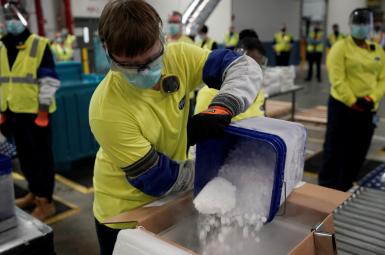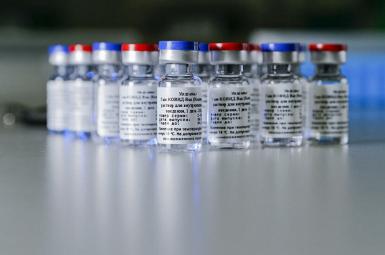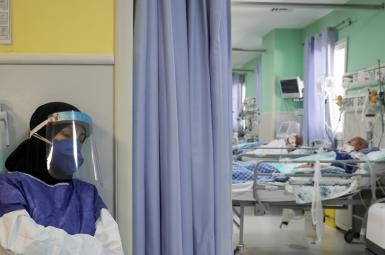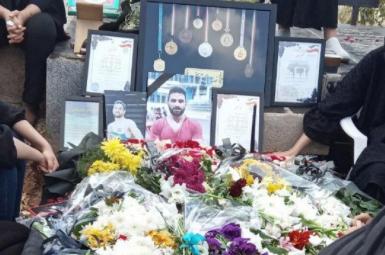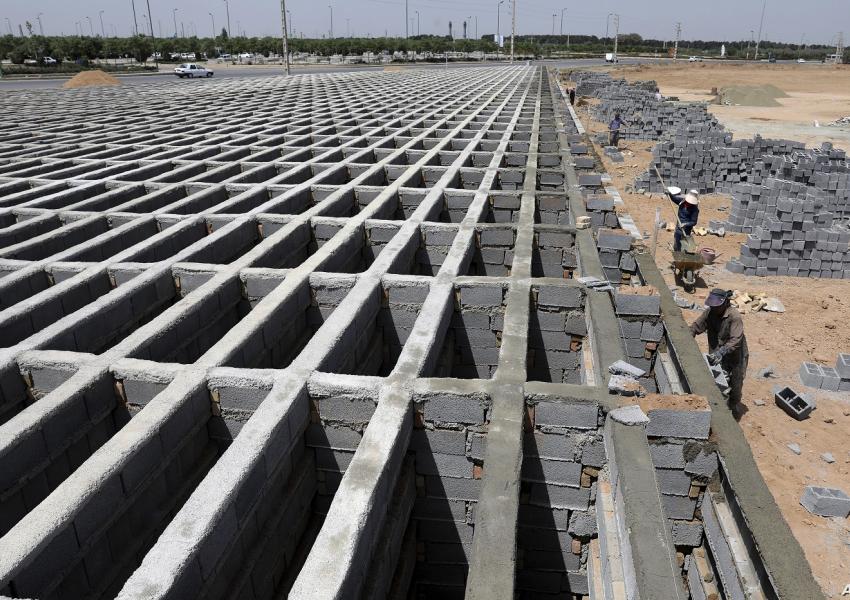
Number Of Burials In Tehran Cast Serious Doubt On Government Figures
Saeed Kahl, the director of Tehran’s main cemetery, has announced that on Friday 216 Covid-19 victims were buried in the capital, a number that casts doubt on the overall Covid death figures published by the health ministry.
In recent days, Iran has been announcing daily Covid deaths in the range of 550-620 nationwide. If in Tehran alone, with 10 percent of the country’s 85-million population, 216 were buried on Friday, the nationwide number seems woefully low.
The Behesht Zahra cemetery is run by the Tehran municipality and on a few occasions in the past it has announced figures that put the central government’s Covid numbers in doubt. The health ministry has been refusing to provide regional breakdown of its Covid infection and death figures, making it harder to verify them.
Tehran’s daily death rate of above 200 is more than double of the trend prior to the latest pandemic surge, Khal has said.
Iran’s total number of Covid deaths passed the 100,000 mark this week, but the parliament’s research center last year said the official figures published by the health ministry seem to be much lower than what reality holds. Health experts, some local officials and people active on social media have been making the same point. Some put the real number of death 2.5 times higher.
Human Rights Watch this week sharply criticized Iran’s government for lack of transparency and mismanagement in its handing of the pandemic. The organization also slammed a ban on importing American and British vaccines ordered by Supreme Leader Ali Khamenei in January.
As Khamenei banned Western vaccines various state entities with backing from the health ministry vowed to produce domestic vaccines, but the attempt has generally failed with public criticism, as the ban on Western vaccines has been partially lifted.
The dangerous Delta variant of the coronavirus spread in Iran during July and by August a serious health crisis emerged, with hospitals unable to cope with the flow of patients of all ages. Health professionals issued dire warnings that the health system was breaking down and public sentiment against the authorities, and particularly Khamenei, intensified.
The government imposed a six-day nationwide shutdown and restrictions last week, which ends today, August 21. Whether the short shutdown can make a dent in the upsurge of infections is doubted by local media and independent experts.
Latest reports say the situation in at least seven provinces is super-critical. The top doctor in Mashhad, Iran’s second largest city announced on Saturday that the situation is serious in the city and there are no families that do not have a patient or someone who has died in the pandemic. He did not mention any numbers but said infections and deaths “are very high” and added that younger people are dying in the current surge.
All health professionals are urging rapid vaccination as the only way to stem the tide and after eight months of promises and half measures the government is scrambling to import vaccines.
